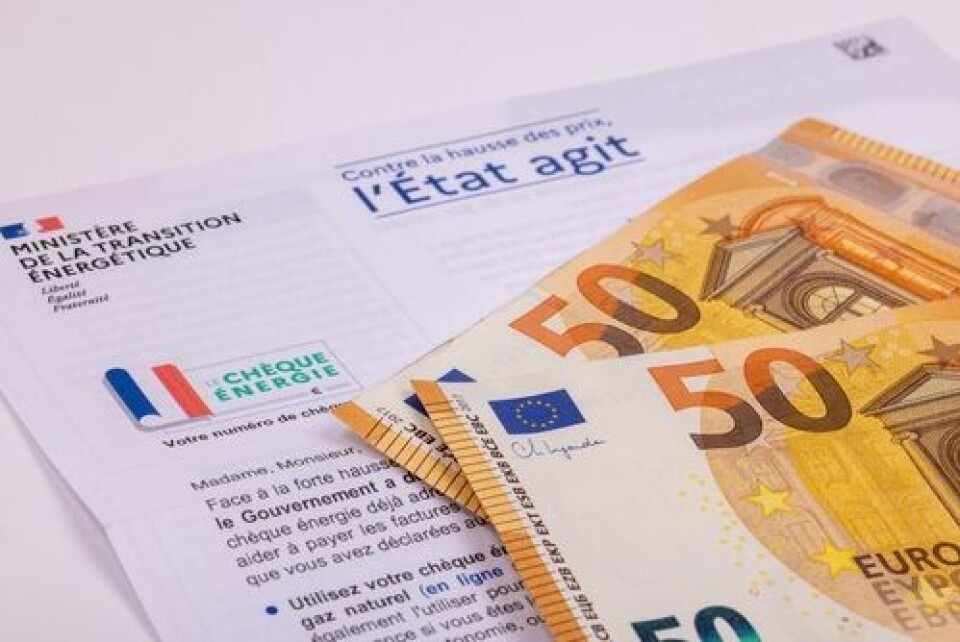-
How I managed to cut the cost of energy bills at my French home
Connexion reader Anthony Powell embraced renewable solutions in years-long renovation project
-
Good news as lower electricity bills confirmed in France
The change is not a ‘revolution’ but will give some purchasing power back, minister says
-
What savings can you make with an heures creuses electricity contract?
Off-peak hours are soon set to change
France sets date for when delayed energy cheques will be sent out
The sending out of the cheques, intended to help low-income households pay their energy bills, was postponed earlier this month

France has set a date for when it will begin handing out energy cheques to 5.8 million low-income households.
The money, intended to help people pay energy bills, had been delayed.
Usually sent out in March or early April, the financial assistance will be handed out on April 21, France’s ecology minister, Agnès Pannier-Runacher, told RMC radio on Monday (March 13).
The cheques are set to be worth between €48 and €277 depending on the household’s revenue and composition. The average is around €150. Recipients do not need to do anything to receive their cheque.
The minister confirmed: “As for every year since 2018, this voucher will be sent automatically by post to the 20% of the least well-off households, whose reference tax income per consumption unit (revenu fiscal de référence par unité de consommation) was less than €11,000 euros in 2021.”
The cheque expires on March 31, 2024.
It comes as energy prices for electricity and gas have already risen by 15% this year.
Ms Pannier-Runacher said: “Recipients can use [the cheque] to pay for your electricity, gas, or wood-burning bill; or for any energy that you use to heat your home.” This means it can also be used to pay for fuel oil bills.
The money can also contribute towards eco-friendly renovations on the recipient’s home.
Delays due to other financial aid
The chèque énergie has been delayed this year due to other financial aid being sent to households within the context of rising energy prices and reduced purchasing power.
Read more: What are France’s energy cheques and why have they been delayed?
This included the chèque énergie exceptionnel of €100-€200 sent to 12 million households from December 2022-January 2023, as well as two other cheques, available on request, to people who heat their homes with fuel oil or wood.
Read more: Explainer: Who will receive France's €100-€200 extra energy aid
The latter was sent automatically to 12 million households, but the fuel oil and wood-heating cheques were not automatic. The first required applicants to request the cheque online before March 31, while the second is still accepting applications until April 30.
These extra cheques caused the processing office, the Agence de services et de paiement, to be overwhelmed, which led to the delay of the usual aid.
Who is eligible for the energy cheque?
To be eligible, you must have declared tax in France for the previous year.
The cheque is then sent automatically, once a year, to households whose declared and taxable income (revenu fiscal de référence, RFR) is less than the threshold set. In 2021, this was €11,000 per unit (active household member).
The government cheque energy website has an online simulator and calculator to help you check if you are eligible.
More information about eligibility, the types of cheque available, and frequently asked questions about the chèque énergie can be found on the dedicated government website here.
Read also
Rising energy bills in France: we recap the aid available in 2023
Thousands in France given free electricity by protesting workers
























